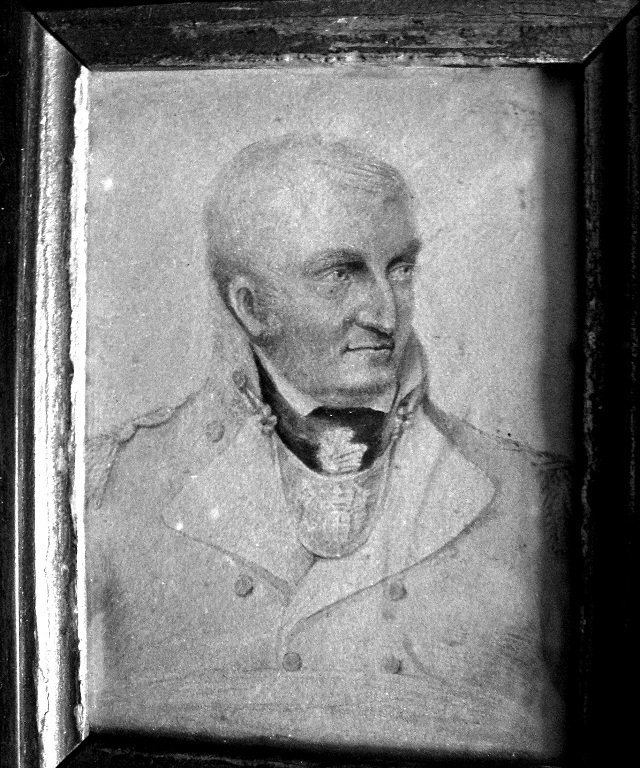The Birtwhistle family are referenced on a large plaque on the southern wall of the aisle in Skipton Holy Trinity Parish Church at the top of Skipton High Street. It was installed by the grandson of John Birtwhistle 1725-1787 by one of his grandsons 60 years later in 1827. This can be seen detailed in the book about the family by the author Tony Stephens, entitled “The Birtwhistles of Craven and Galloway.” It spoke of them being Drovers, Industrialists, poets and spies!
Droving cattle, the art of getting them safely from one location to another, was a very lucrative profession towards the late 18th century and so much so, it influenced the landscape of the Craven district. The building of many of the dry stone walls throughout the area was to accommodate the moving of cattle south from Scotland.
John Birtwhistle who was resident in Skipton around the mid 1880’s was one such drover and arranged for 20,000 cattle a year to be brought down from the Hibernian Highland hills to fairs on Malham Close nearby. The drovers were charged for the amount of grass their cattle consumed whilst at the fair. So they would have timed the drive to arrive just prior to its start and get them there as speedily and efficiently as possible.
John was so successful at his speciality that he was able to purchase a good sized freehold property at the bottom end of Skipton High Street. The yard behind it is to this day known as Birtwhistles Yard. He also managed to buy estates in Craven and at other strategic points along the route in order that he could move his cattle through the district on into Lincolnshire, then through East Anglia and on to their final destination at market in London.
The reason for purchasing the land also had something to do with the increased value of fattened cows. Doing so could increase the value of cattle on the hoof by as much as 300% so it made very good business sense to do so! According to Tony in his fascinating biography, John Birtwhistle and his three sons who were also involved in the business were possibly the most successful of all the British drovers at the time and sustained the business for nearly three quarters of a century!
Much of the profit they made from the business was reinvested into other ventures helping to secure their place in history as significant industrialists in the early years of the Industrial Revolution. By the 1760’s he had done so well for himself and his family that John Birtwhistle was reportedly wealthy and a gentleman. He invested heavily in the Leeds to Liverpool canal helping to finance its construction.
Shortly before his demise John had a huge cotton mill built at Gatehouse of Fleet and the workers there were housed in mill cottages on Birtwhistle Street. The mill looms long since fell silent and it is now a visitor centre attracting many people to the area.
Hi sons owned many properties between them in England and Scotland. Alexander resided at Gatehouse of Fleet, while Robert had his home at Crakemoor Farm, Long Preston and William lived in a newly built house at the top of Skipton High Street that was completed in 1792. It was on a 40 year lease from Skipton Castle estate.
John Vardill who became John Birtwhistles’ son-in-law after marrying his daughter Agnes in Skipton 1778 was rewarded by King George lll for his great prowess as a spy! He was a key contributor to the war efforts with both France and America. His daughter Anna Jane Vardill (1771-1852) inherited a good deal of the estate and went on to become a prolific author in London.
One of her works was published in the European Magazine and it was written in the house on Skipton High Street while she was visiting a terminally ill William Birtwhistle.
As mentioned, this book is not confined to cattle on the hoof. John Vardill, who married Agnes, daughter of John Birtwhistle in Skipton in 1778, was one of Britain’s most enterprising spies, being rewarded by George III for his successes during Britain’s wars with France and America. His daughter, Anna Jane Vardill (1771-1852), who inherited much of the Birtwhistle estate in Craven, was a prolific writer in Regency London.
Her work included a clever feminist piece, published in the European Magazine. It had been written at the house in Skipton High Street in 1819. Anna was visiting a dying William Birtwhistle.
Birtwhistles Yard is now home to Town House Bed & Breakfast and also Central Bed & Breakfast offering respite and hospitality to weary travellers of the modern era!


Comments